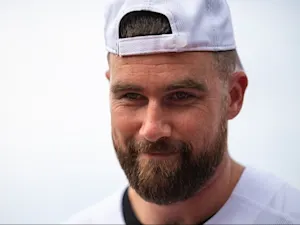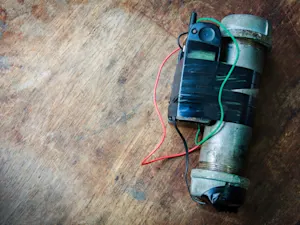
SC Execution Sparks Outcry Over Firing Squad Method
Stephen Corey Bryant. Photo courtesy of the South Carolina Department of Corrections.
When Stephen Bryant, a 44-year-old convicted triple murderer, faced the final moments of his life on Friday, Nov. 14, 2025, at the Broad River Correctional Institution in Columbia, South Carolina, his last meal was a surprisingly lavish spread. He chose mixed seafood stir-fry, fried fish over rice, egg rolls, stuffed shrimp, two candy bars, and German chocolate cake, a stark contrast to the grim fate that awaited him.
Choosing the Firing Squad
Bryant's decision to be executed by firing squad rather than lethal injection or electrocution adds a chilling dimension to his story. South Carolina allows inmates to select their method of execution, and Bryant's choice reflects a recent resurgence of firing squad executions in the state after a 13-year hiatus in capital punishment.
The firing squad, often seen as an archaic and brutal method, has been described by some inmates as a quicker and less painful alternative to lethal injection, which has faced criticism for causing prolonged and agonizing deaths due to the sedative pentobarbital. Bryant's choice aligns with concerns voiced by other inmates who feared the potential suffering associated with lethal injection.
The Murders That Terrorized Sumter County
Bryant's execution closed a dark chapter that began in October 2004, when he embarked on a week-long spree of burglary and murder in rural Sumter County. At 23 years old, he fatally shot three men: Clifton Gainey, 36, a coworker; Willard "TJ" Tietjen, 62; and Chris Burgess, 35.
The horror of Bryant's crimes was intensified by his disturbing behavior at the scenes. Investigators said Bryant left notes written in the victim's blood on the walls of Tietjen's home, including one that read, "Victim number four in two weeks, catch me if you can," as reported by PEOPLE. Fox News reported a slightly different version of the message, spelling "you" as "u." Bryant also taunted the victim's wife and daughter by answering Tietjen's phone and confirming the man's death. Additionally, investigators said Bryant burned Tietjen's eyes with cigarettes.
A Troubled Past and a Broken System
Bryant's story is not only one of violence but also of tragedy and systemic failure. His lawyers revealed that he suffered from a genetic disorder and brain damage caused by his mother's alcohol and drug use during pregnancy, as reported by The Guardian. He endured severe physical and sexual abuse during childhood, which compounded his mental health struggles.
In the years before the murders, Bryant reportedly sought mental health counseling but was denied treatment because he could not afford the $75 fee. His attorneys argued that this lack of care left him unable to cope with the tormenting memories of his childhood abuse, a factor they said was not fully considered during his sentencing, as reported by The Guardian.
Bryant's final wish was that no one else be denied mental health support due to financial barriers. His lawyer, Bo King, reflect on Bryant's final wish saying, "That is consistent with the man we knew, who showed grace and courage in forgiving his family and great love for those in and outside of his prison," as reported by PEOPLE, citing the Daily Gazette. "We will remember his unlikely friendships, his fierce protectiveness, and his love for nature, the water, and the world. We will miss him."
The Execution
On the evening of Nov. 14, Bryant was led to the execution chamber, where he reportedly gave a brief glance to the 10 witnesses present before prison officials placed a hood over his head. The firing squad, composed of three prison employees, discharged their weapons, and Bryant's death was pronounced at 6:05 p.m.
Fox News reported that family members of the victims, who served as witnesses, held hands during the execution.
After the shots were fired, a red bull's-eye target reportedly placed over Bryant's heart flew forward, according to The Guardian, citing the Associated Press. He took a few shallow breaths and experienced a final spasm before a doctor confirmed his death shortly thereafter.
South Carolina's Controversial Role in Firing Squad Executions
South Carolina has executed seven people in just over a year, with three of those deaths carried out by firing squad, cementing the state's controversial role in the use of this method. Human rights advocates continue to decry the firing squad as barbaric, while others argue it is a more humane alternative to other execution methods.
A Story of Terror and Reckoning
Stephen Bryant's story is a stark reminder of the complexities surrounding capital punishment. It intertwines the horror of violent crime with the tragedy of a broken mental health system and the difficult choices faced by those on death row. His final meal, a moment of normalcy before the end, contrasts sharply with the terror he inflicted and the reckoning that followed.
For the families of Bryant's victims, the execution may bring a measure of closure, but the haunting memories of his crimes and the bloodied messages remain a chilling legacy. For society, Bryant's case raises questions about justice, mercy, and the support systems that might prevent such tragedies from occurring in the first place.
As you reflect on this story, consider the human lives behind the headlines — the victims, their families, and even the condemned. It's a sobering tale that challenges us to think deeply about crime, punishment, and the path toward healing.
References: South Carolina Triple Murderer Ate Final Meal Before Firing Squad Execution | South Carolina executes third inmate by firing squad this year | Fox News | South Carolina executes man by firing squad, in state's third such killing in year | South Carolina | The Guardian























